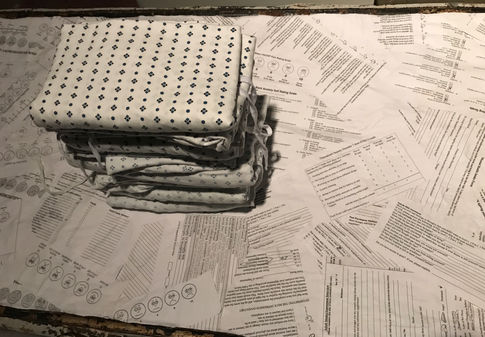Trauma
By Sophie Restall
“Young adult survivors of childhood cancers are four times more likely to develop post-traumatic stress disorder (PTSD) than their siblings who have not had cancer”
(a Childhood Cancer Survivors Study by UCLA researchers in 2010)
I was diagnosed with stage IV Non-hodgkin's Lymphoma at the age of 5. For most of my life since I was deemed cancer-free, I had simply celebrated my survival and praised my wonderful doctors and nurses, telling myself that I was too young for bad memories from chemotherapy to stick. About a year and a half ago, I realized that I had lived in Santa Cruz for 3 years and had yet to see a doctor. “I’ve been to doctors so many times. I don’t see why it would be a big deal,” I told myself. I was wrong. I learned that going to the doctor is terrifying and being asked to put on a gown then being left alone in a room is more than uncomfortable, it’s overwhelmingly traumatic. While I had always complained about going to the doctor and had aversions to small things (such as fruit punch because that was the flavor of the liquid I had to drink before CT scans), my symptoms worsened as I became a young adult. In the last year, I’ve struggled more with my mental health than ever before. The aim of this piece is twofold: to help me face my trauma so that I can move past it and to bring awareness to the delayed mental health impacts of medical experiences.

Winner of the UC Santa Cruz 2018 Arts Division Chancellor's Award





